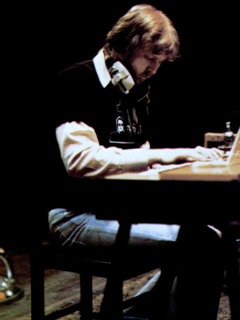
Harry Edward Nilsson III, known professionally as Nilsson, was an American singer-songwriter who achieved the peak of his commercial success in the early 1970s. His work is characterized by pioneering vocal overdub experiments, returns to the Great American Songbook, and fusions of Caribbean sounds. A tenor with a 3 1⁄2 octave range, Nilsson was one of the few major pop-rock recording artists to achieve significant commercial success without ever performing major public concerts or undertaking regular tours. The craft of his songs and the defiant attitude he projected remains a touchstone for later generations of indie rock musicians.

Randall Stuart Newman is an American singer-songwriter, arranger and composer known for his Southern-affected singing style, early Americana-influenced songs, and various film scores. His best-known songs as a recording artist are "Short People" (1977), "I Love L.A." (1983), and "You've Got a Friend in Me" (1995), while other artists have enjoyed more success with cover versions of his "Mama Told Me Not to Come" (1966), "I Think It's Going to Rain Today" (1968) and "You Can Leave Your Hat On" (1972).

Pisces, Aquarius, Capricorn & Jones Ltd. is the fourth album by the Monkees. It was released on November 6, 1967, when the Monkees were exerting more control over their music and had started to play many of the instruments themselves, something that their record company had previously forbidden. Pisces, Aquarius, Capricorn & Jones Ltd. sold more than three million copies and was also the band's fourth consecutive album to reach number one on the U.S. Billboard 200.
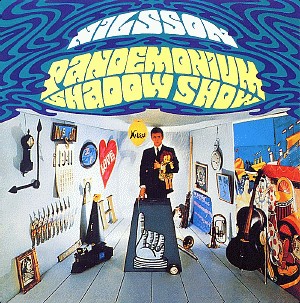
Pandemonium Shadow Show is the second album by Harry Nilsson.
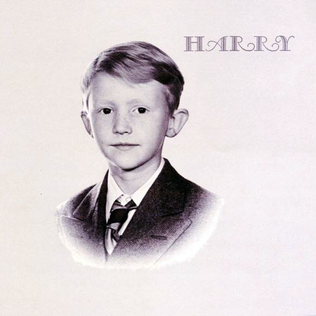
Harry is the fourth studio album by Harry Nilsson, released August 1969 on RCA. It was his first album to get onto Billboard Magazine's Billboard 200 chart, remaining there for 15 weeks and reaching #120.

Aerial Pandemonium Ballet is a 1971 album by Harry Nilsson, and one of the first-ever remix albums, years before they became commonplace in the late 1970s and 1980s onwards.
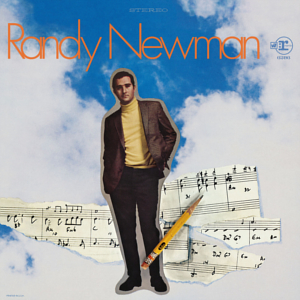
Randy Newman is the eponymous debut studio album by American singer-songwriter Randy Newman, released in 1968 by Reprise Records. Unlike his later albums, which featured Newman and his piano backed by guitar, bass guitar and drums, Randy Newman was highly orchestral and aimed to blend the orchestra with Newman's voice and piano.

More Greatest Hits of the Monkees is a 1982 greatest hits compilation album of songs by the Monkees, assembled and released by Arista Records. Rather than featuring strictly hit singles, the collection also featured music from their television series, which was still airing in syndication around the US.
"Bad Company" is a song by the hard rock band Bad Company. It was released as the third single from their debut album Bad Company in 1974, although it did not chart. Co-written by the group's lead singer Paul Rodgers and drummer Simon Kirke, the song's meaning comes from a book on Victorian morals. The song uses the same chords and piano figure as Joni Mitchell's song "Woodstock" from 1970.
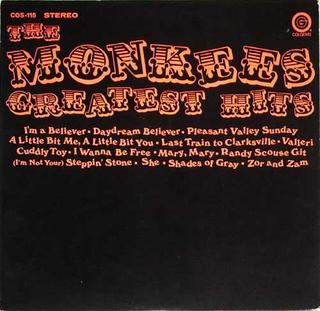
The Monkees Greatest Hits is the first greatest hits compilation album by the Monkees, issued by Colgems in June 1969.

Planets Conspire is a 2006 album by The Meligrove Band. Released January 17, 2006 in Canada, Planets Conspire is their third studio album, and their first with V2 Records. The album features Jason Nunes on vocals, piano, guitar and organ, Andrew Scott on guitar, organ and brass, Michael Small on bass and Darcy Rego on drums and acoustic guitar.

Sons of the Desert was an American country music band founded in 1989 in Waco, Texas. Its most famous lineup consisted of brothers Drew Womack and Tim Womack, along with Scott Saunders (keyboards), Doug Virden, and Brian Westrum (drums). The band released Whatever Comes First for Epic Records Nashville in 1997, and recorded a second album for Epic which was not released. Change followed in 2000. Counting two singles from the unreleased album, Sons of the Desert charted eight times on the Billboard Hot Country Songs charts, including the top ten hit "Whatever Comes First"; they were also guest vocalists on Lee Ann Womack's 2000 hit "I Hope You Dance" and Ty Herndon's "It Must Be Love", both of which reached No. 1 on that chart. Following the band's disestablishment, Drew Womack became a solo artist.
Henri Fabergé and the Adorables are a Canadian indie rock band formed in 2005 from Toronto, Ontario, Canada.

The Bicycles are a Canadian indie pop quartet from Toronto composed of Matt Beckett, Drew Smith, Dana Snell, and Andrew Scott.
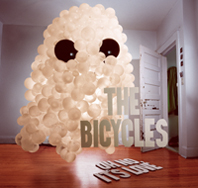
Oh No, It's Love is the second album by Canadian pop band The Bicycles. It is the first album to feature The Bicycles as a quartet, following Randy Lee's departure.
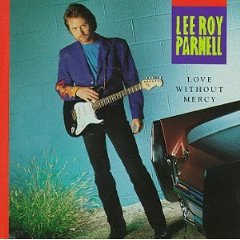
Love Without Mercy is the second album released by country music singer Lee Roy Parnell. It was released in 1992 on Arista Records. The album includes the singles "The Rock", "What Kind of Fool Do You Think I Am", "Tender Moment" and "Love Without Mercy". The latter three all reached Top Ten on the Billboard country charts. "Back in My Arms Again" was also recorded & released as a single by Kenny Chesney in 1996 off of Me and You.

Keys to the Highway is the sixth studio album by country music artist Rodney Crowell, released in 1989 by Columbia Records. It peaked at number 15 on the Top Country Albums chart. The songs, "Many a Long and Lonesome Highway", "If Looks Could Kill", "My Past Is Present", "Now That We're Alone" and "Things I Wish I'd Said" were released as singles. The last single failed to reach the top 40.

Love Is Strong is the title of the fourth studio album by country music artist Paul Overstreet released in 1992. It produced three singles, "Me and My Baby", "Still Out There Swinging" and "Take Another Run". While this album was not as successful as his previous two, "Me And My Baby" managed to reach the top 40 while the others did not. The album itself peaked at #28 on the Billboard Top Christian Albums Chart while only reaching #60 on the Top Country Albums chart.

The Definitive Monkees is a limited edition Monkees compilation album released in 2001. It contains 29 of the Monkees' greatest hits. The album includes two tracks from the 1980s reunions. The album featured a bonus disc which featured 31 of The Monkees' rarity songs.

Monkeemania is a two-disc Monkees compilation released in 2011. It contains 57 of the Monkees' songs, including hit singles, B-sides, album tracks and rarities. Several of these songs were unreleased in the 1960s, but were eventually issued on the Monkees' Missing Links archival compilation albums.

















